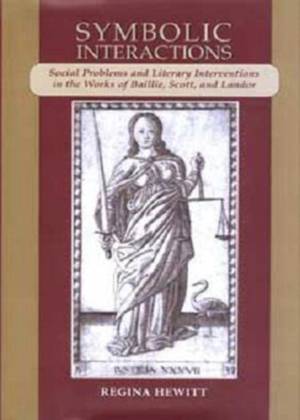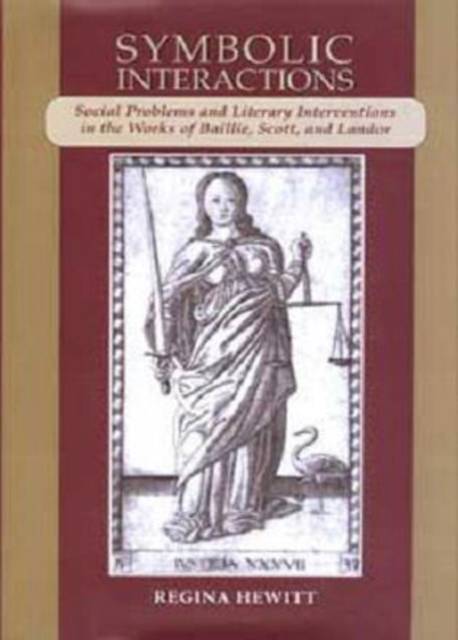
- Afhalen na 1 uur in een winkel met voorraad
- Gratis thuislevering in België vanaf € 30
- Ruim aanbod met 7 miljoen producten
- Afhalen na 1 uur in een winkel met voorraad
- Gratis thuislevering in België vanaf € 30
- Ruim aanbod met 7 miljoen producten
Zoeken
Symbolic Interactions
Social Problems and Literary Interventions in the Works of Baillie, Scott, and Landor
Regina Hewitt
€ 104,95
+ 209 punten
Omschrijving
Taking literally Joanna Baillie's claim that drama can promote social justice, the study explores how plays by Baillie, novels by Walter Scott, and Imaginary Conversations by Walter Savage Landor address problems of capital punishment, poverty, and political participation. Baillie's and Scott's preoccupation with affective responses to criminals and beggars takes on new significance when situated next to nationalist efforts to use legal differences to promulgate an image of Scotland as a more compassionate society than England and when contrasted with Landor's confidence in political claims-making to meet social needs. The study enlists analogies between the 'symbolic interaction' prompted by the selected writers and the concepts of 'symbolic interaction' still evolving from the sociology of Jane Addams, George Herbert Mead, and subsequent practitioners to recover a belief in the social efficacy of literature that was accepted during the pre-disciplinary Romantic era but contested throughout much of the twentieth century. The study advocates the renewal of literary interventionism in our post-disciplinary age.
Specificaties
Betrokkenen
- Auteur(s):
- Uitgeverij:
Inhoud
- Aantal bladzijden:
- 280
- Taal:
- Engels
- Reeks:
Eigenschappen
- Productcode (EAN):
- 9781611482492
- Verschijningsdatum:
- 1/04/2006
- Uitvoering:
- Hardcover
- Formaat:
- Genaaid
- Afmetingen:
- 167 mm x 245 mm
- Gewicht:
- 566 g

Alleen bij Standaard Boekhandel
+ 209 punten op je klantenkaart van Standaard Boekhandel
Beoordelingen
We publiceren alleen reviews die voldoen aan de voorwaarden voor reviews. Bekijk onze voorwaarden voor reviews.











